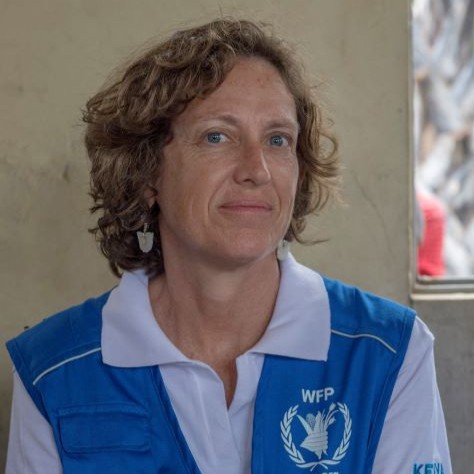While Somalia is facing one of the world's biggest public health threats from COVID-19, the country is also struggling with floods in the north that have killed 24 people and are affecting over 700 000 people in 24 districts. These floods have also displaced almost 283 000 people in the area. All 6 states have suffered the effects of this flash flood that occur annually as a result of the Gu rains, which is a monsoon like rainfall Hirshabelle, Jubaland, Southwest and Puntland states being the most affected. The flooding resulted from a sharp rise in the level of the Shabelle river following heavy and incessant rains in Somalia and Ethiopian highlands, which started in late April. As of 10th May, water levels reached 7.93 metres, which are 0.37 metres below the bank's full level of 8.30 metres.
The World Health Organization (WHO) country office and the Delegation of the European Union (EU) to Somalia have joined hands under a new collaboration in the country to strengthen operational response activities and fight the effects of the COVID-19 pandemic. This new collaboration aims to accelerate support for the frontline work of WHO in combating COVID-19 in a seemingly vast country where transportation of vital medical supplies and personnel needed for rapid response to the outbreak remain a perpetual challenge owing to suspension of commercial and cargo flights and the lockdown.
/sites/default/files/featured_images/2020/06/EUNAVFOR-2_1-million-tonnes-of-WFP-shipping-protected_-compressed.mp4
The United Nations World Food Programme is the world’s largest humanitarian organization, saving lives in emergencies, building prosperity and supporting a sustainable future for people recovering from conflict, disasters and the impact of climate change.
UN World Food Program (WFP) projects that the number of acutely food insecure people is likely to double over the next few months reaching 43 million in East Africa and the Horn due to the socio-economic impact of the pandemic.
“More people are expected to die from the socio-economic impact of COVID-19 than from the virus itself […]. Refugees and the urban poor across the region are at greatest risk.”

Brenda Behan
WFP Deputy Regional Director
EU Naval Force Somalia Operation Atalanta is mandated to protect and monitor vulnerable vessels, like the WFP vessel Juist, to deliver vital food aid and medical supplies to the people of Somalia. Last week, MV Juist delivered 3,039 metric tonnes of humanitarian food-aid. In this case, EU NAVFOR was supported by the Indian Navy to ensure the safe delivery of this vital aid. Over the last 11 years, 2,143,816 tonnes of food aid have reached Somalia through the direct protection and monitoring from European Union Naval Forces.
The World Health Organization (WHO) country office and the Delegation of the European Union (EU) to Somalia have joined hands under a new collaboration in the country to strengthen operational response activities and fight the effects of the COVID-19 pandemic. This new collaboration aims to accelerate support for the frontline work of WHO in combating COVID-19 in a seemingly vast country where transportation of vital medical supplies and personnel needed for rapid response to the outbreak remain a perpetual challenge owing to suspension of commercial and cargo flights and the lockdown.
/sites/default/files/featured_images/2020/06/EUNAVFOR-2_1-million-tonnes-of-WFP-shipping-protected_-compressed.mp4
The United Nations World Food Programme is the world’s largest humanitarian organization, saving lives in emergencies, building prosperity and supporting a sustainable future for people recovering from conflict, disasters and the impact of climate change.
UN World Food Program (WFP) projects that the number of acutely food insecure people is likely to double over the next few months reaching 43 million in East Africa and the Horn due to the socio-economic impact of the pandemic.
“More people are expected to die from the socio-economic impact of COVID-19 than from the virus itself […]. Refugees and the urban poor across the region are at greatest risk.”

Brenda Behan
WFP Deputy Regional Director
EU Naval Force Somalia Operation Atalanta is mandated to protect and monitor vulnerable vessels, like the WFP vessel Juist, to deliver vital food aid and medical supplies to the people of Somalia. Last week, MV Juist delivered 3,039 metric tonnes of humanitarian food-aid. In this case, EU NAVFOR was supported by the Indian Navy to ensure the safe delivery of this vital aid. Over the last 11 years, 2,143,816 tonnes of food aid have reached Somalia through the direct protection and monitoring from European Union Naval Forces.
